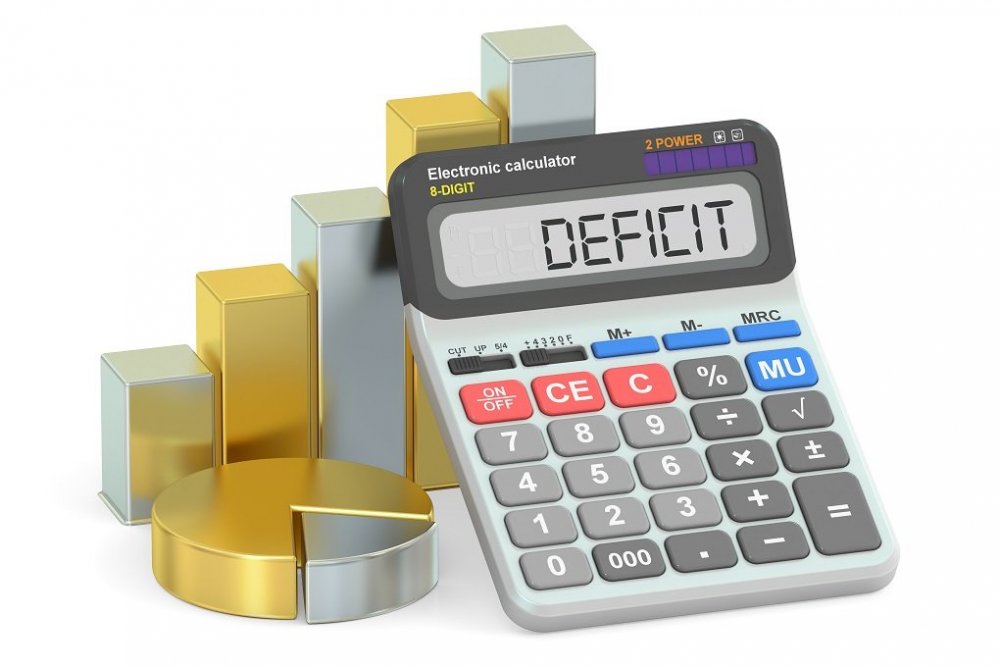Other Pages
- Opinion Poll
- About Us
- Send Your Story
- Contact Us
- Newsletter
- Privacy Policy
- Terms and Conditions

Nigeria's fiscal deficit reached its highest level in 21 years as the Federal Government spent N6.17 trillion more than it earned in 2020.
Data from the Central bank of Nigeria showed that Nigeria's financial deficit, which is the difference between expenditure and revenue, widened to 6.1 percent of GDP in the first quarter of 2021.
The widening budget deficit shows that Nigeria has continuously been living above its means and points to high levels of unnecessary expenditure such as the petrol subsidy that gulps over a trillion naira per annum among other overly expensive ventures.
On Tuesday, the Federal Government said it has submitted a proposal to borrow N5.62 trillion to finance the budget deficit in the 2022 budget, just after saying it would cut down on capital expenditure in 2022 by N259.315 billion.
"On capital expenditure, the sum of N1,759,804,022,579, as opposed to the N2,019,119,204,546, will be available to Ministries, Departments, and Agencies of government in 2022," said Zainab Ahmad, the minister for finance, budget, and national planning.
"The budget deficit that is projected for 2022 is N5.62 trillion, up from N5.60 trillion in 2021. The deficit is going to be financed by new foreign borrowing. And domestic borrowing, both domestic and foreign in the sum of N4.89 trillion, then privatisation proceeds of N90.73 billion and drawdowns from existing project titles of N635 billion.
"This amount represents 3.05 percent of the estimated GDP, which is slightly above the three percent threshold that is spent as recommended in the Fiscal Responsibility Act".
The last time Nigeria’s fiscal deficit exceeded 4 percent was in 1999 when the government opened the taps on infrastructure spending to give the economy a boost after years of military rule. That year, the government spent more on capital expenditure (N498bn) than recurrent expenditure (N449bn). The actual deficit amounted to only N285 billion even though it was 5.2 percent of GDP. In 2020, however, the government spent about 4 times more on recurrent expenditure (N8.1trn) than on capital expenditure (N1.6trn).
Emerging economies, as well as developed ones all, saw their fiscal deficits exceed usual thresholds last year amid record spending to combat the economic impact of COVID-19. However, the difference when compared with Nigeria is that many of these other countries have pumped resources into health infrastructure and meaningful social protection schemes while Nigeria continues to expend all of its cash servicing debt, maintaining an over-bloated civil service and on consumption subsidies.
Data from the CBN showed that the Federal Government’s fiscal deficit hit N2.4 trillion in the first quarter of 2021, up from N1.6 trillion in the fourth quarter of 2020 and N1.4 trillion in the first quarter of 2020. That is after the government kept up with its expenditure plans but fell way short of its revenue projection.
However, the government’s retained revenue was N904.3 billion, a 9 percent decline compared to the same period last year and 55 percent off the target set in the 2021 budget.
The government’s overambitious revenue targets have meant it has failed to achieve its budgeted revenue since 2014. The trend looks set to continue in 2021 with analysts tagging the N7.99 trillion revenue targets in the budget as a tad too ambitious. The amount implies a pro-rata quarterly run-rate of almost N2 trillion but there are holes in that projection.
For instance, the government anticipates it will earn N2.7 trillion from government-owned enterprises (GOEs), despite the source’s weak track record. In 2020, the FGN’s expected revenue taken from GOEs was N990 billion. However, no revenue was generated from the source, according to the budget implementation report published by the CBN.
The government’s dwindling revenue has been a long-standing problem that economists say can only be solved by reforms that encourage more private capital to enable the government to deliver on its gaping infrastructure needs. The concept is something the government is beginning to buy into following the creation of the N15 trillion infrastructure company, which will ride on a Public-Private Partnership (PPP) model to deliver investment in infrastructure.
The company, Infrastructural Corporation of Nigeria Limited (INFRACO), which is a partnership between the CBN, Africa Finance Corporation (AFC), Nigeria Sovereign Investment Authority (NSIA), and other private organisations, is expected to begin full operations by the third quarter of the year.
0 Comment(s)